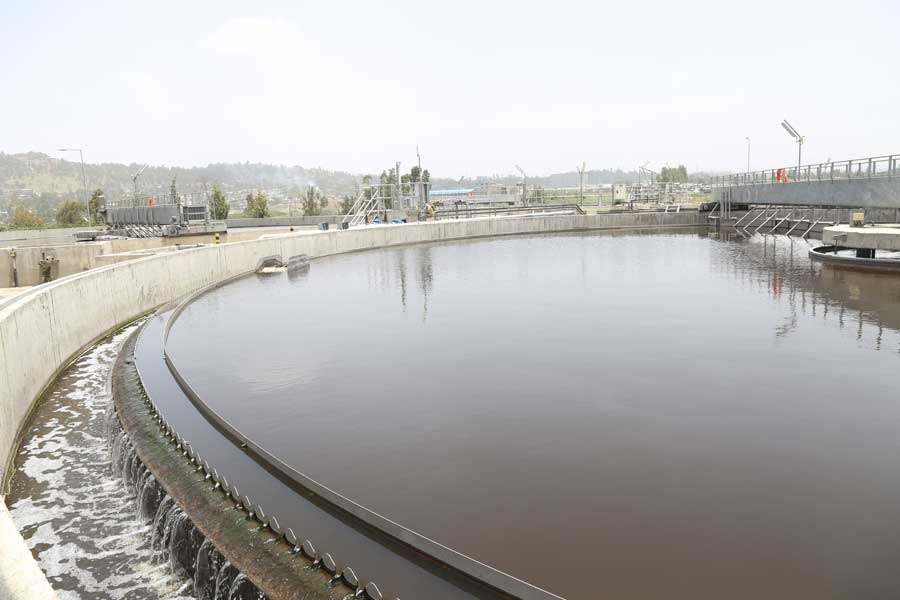
Advertorials | Dec 06,2023
Jul 2 , 2022
By Andrew Sheng , Xiao Geng
The world is facing a triple crisis of food, energy, and water scarcity. While its immediate triggers were the COVID-19 pandemic and the Ukraine war, its roots run much deeper: a culture of relentless consumption, the rapid growth of inadequately planned cities, and disregard for rural well-being.
In many ways, globalisation rests on the principle that “bigger is better.” Massive conglomerates can achieve economies of scale that small and medium-sized enterprises cannot, and highly concentrated cities generate more innovation, GDP growth, and productivity than dispersed, sparsely populated rural areas. The natural next step on the quest for scale and concentration is networked “smart cities” and urban hubs.
What is often forgotten is that such systems are highly resource-intensive. And, as detached from traditional rural livelihoods as they might seem, cities and conglomerates depend on rural communities to provide many of those resources. In fact, as the United Nations Convention to Combat Desertification’s latest Global Land Outlook points out, more than half of world GDP is moderately or highly dependent on natural capital.
Today, much of that capital is being destroyed, degraded, or depleted, owing to over-cultivation, over-extraction, and pollution. Consider tropical forests. Carbon-rich and biodiverse, they are essential to the planet’s health – and thus to our own. And yet, as the UNCCD reports, at least 69pc of tropical forest clearance for agriculture – especially cattle, palm oil, soy, and pulp plantations – between 2013 and 2019 was carried out in violation of national laws or regulations.
The UNCCD blames this failure on factors like “shortsighted” national development priorities, “global trade incentives,” and “consumer demand in developed countries.” And the culprits are largely big corporations: over 70pc of the world’s agricultural land is controlled by just one percent of farms, primarily large agribusinesses, while more than 80pc of all farms – accounting for 12pc of all farmland – are smallholdings of under two hectares.
The solution is not to turn our backs on globalisation, let alone cities. Rather, it is to create “smart villages,” which have access to high-quality services – including water, energy, transport, and internet – and are linked to smart cities. By reducing both production costs and transaction costs related to information, knowledge, and finance, smart villages would enable the development of more sustainable and resilient supply chains. And given that more than 43pc of the world’s people live in rural areas, they would lead to a significant reduction in poverty.
This is not merely theoretical. China owes much of its poverty reduction to the extension of critical infrastructure – from roads and railways to electricity, internet, and water supplies – to rural villages. One key mechanism for progress has been e-commerce. Internet connections enabled rural producers to sell their products directly to urban consumers using online platforms, and reliable transport links facilitated delivery.
Beyond traditional e-commerce, online connectivity provides opportunities for talented young people to earn income through microwork – the completion of small online tasks that, together with thousands completed by others, produce a large unified project – and creative services (such as TikTok or YouTube videos). Moreover, digital connectivity enables rural communities to earn revenues by selling carbon credits for their carbon-capture projects. And it can significantly boost financial inclusion.
As it stands, however, only 35pc of people in developing countries currently have internet access, compared to 80pc in advanced economies. This is a major missed opportunity, not least because delivering access is hardly prohibitively expensive. The key to building smart villages affordably, as China’s experience shows, is often to extend city infrastructure to cover surrounding rural areas.
For remote villages, in Nepal and elsewhere, however, micro-grids are proving highly beneficial. Powered by whichever renewable-energy source is most readily available locally, micro-grids can be implemented in remote areas, without requiring the construction of expensive power lines and inefficient distribution networks from major cities. Thanks to 4G and 5G technology, villages can still be connected to the nearest internet hub.
Other smart-village priorities include upgrading water and sanitation systems, ensuring greener building designs, providing irrigation systems for food production, improving land use and soil regeneration through “permaculture,” and reducing waste through circular-economy principles. We have the know-how and technology to achieve all of this.
And that is the point: smart cities are supposed to be at the cutting edge of sustainability and design thinking. But villages should have access to all the same knowledge and resources, so that rural populations can build more environmentally sustainable and economically prosperous communities. Just as Wikipedia is a global creative commons built by many for the many, we need a Global Village creative commons, whereby knowledge and funding, wherever they are found, could be accessed, localised, and used for generating income by rural communities.
Lack of economic opportunity is a major reason why young people are fleeing villages to live in cities. But while they might find jobs in urban areas, they are likely also to struggle to achieve a decent standard of living, beginning with quality housing. Meanwhile, the rural villages they leave behind are being consigned to aging, isolation, and poverty. It is a recipe for social discontent – and a major driver of populist backlashes against globalization in many countries.
By providing more lucrative opportunities and a better quality of life to their inhabitants, smart villages would ease the pressure on cities and allow more sustainable systems to be implemented by those living closest to nature. Building them is thus clearly in the public interest. They are a long-term investment that governments, major corporations, and charitable foundations should embrace.
Nearly a half-century ago, E.F. Schumacher reminded us that small is beautiful, and that we must build our economies around the needs of communities, not corporations. He was right. Smart villages are a crucial step in this direction.
PUBLISHED ON
Jul 02,2022 [ VOL
23 , NO
1157]

Advertorials | Dec 06,2023

Radar | Nov 21,2018

Fortune News | Aug 06,2020

Fortune News | Sep 28,2019

Viewpoints | May 31,2025

Films Review | Apr 30,2021

Fortune News | Jan 07,2022

Fortune News | Dec 14,2019

Radar | Feb 23,2019

Viewpoints | Jun 17,2023

Photo Gallery | 174231 Views | May 06,2019

Photo Gallery | 164455 Views | Apr 26,2019

Photo Gallery | 154607 Views | Oct 06,2021

My Opinion | 136655 Views | Aug 14,2021
Editorial | Oct 11,2025

Dec 22 , 2024 . By TIZITA SHEWAFERAW
Charged with transforming colossal state-owned enterprises into modern and competitiv...

Aug 18 , 2024 . By AKSAH ITALO
Although predictable Yonas Zerihun's job in the ride-hailing service is not immune to...

Jul 28 , 2024 . By TIZITA SHEWAFERAW
Unhabitual, perhaps too many, Samuel Gebreyohannes, 38, used to occasionally enjoy a couple of beers at breakfast. However, he recently swit...

Jul 13 , 2024 . By AKSAH ITALO
Investors who rely on tractors, trucks, and field vehicles for commuting, transporting commodities, and f...

Oct 11 , 2025
Ladislas Farago, a roving Associated Press (AP) correspondent, arrived in Ethiopia in...

Oct 4 , 2025
Eyob Tekalegn (PhD) had been in the Governor's chair for only weeks when, on Septembe...

Sep 27 , 2025
Four years into an experiment with “shock therapy” in education, the national moo...

Sep 20 , 2025
Getachew Reda's return to the national stage was always going to stir attention. Once...

Oct 12 , 2025
Tomato prices in Addis Abeba have surged to unprecedented levels, with retail stands charging between 85 Br and 140 Br a kilo, nearly triple...

Oct 12 , 2025 . By BEZAWIT HULUAGER
A sweeping change in the vehicle licensing system has tilted the scales in favour of electric vehicle (EV...

Oct 12 , 2025 . By NAHOM AYELE
A simmering dispute between the legal profession and the federal government is nearing a breaking point,...

Oct 12 , 2025 . By NAHOM AYELE
A violent storm that ripped through the flower belt of Bishoftu (Debreziet), 45Km east of the capital, in...